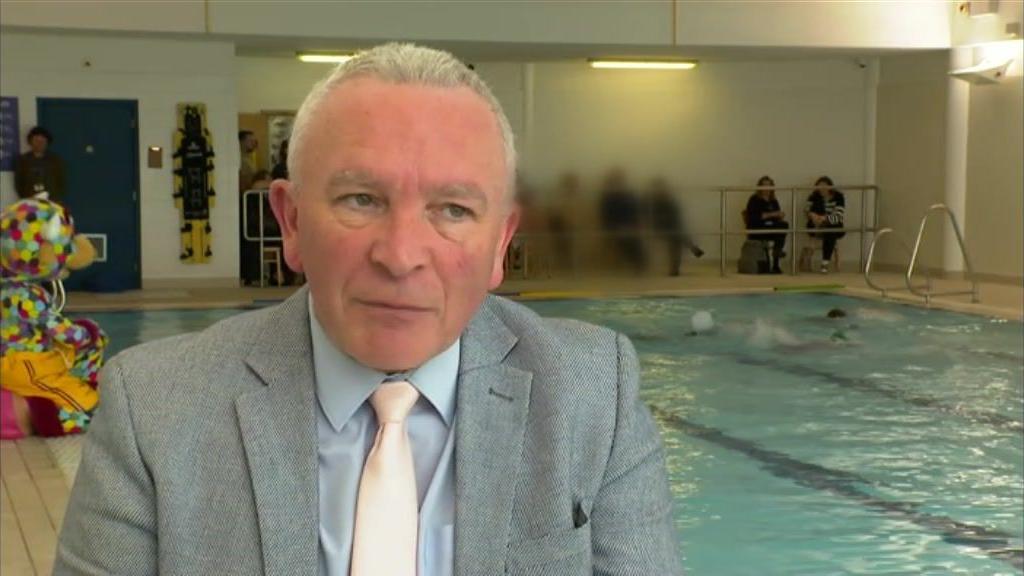'A generation of kids have no swimming skills'
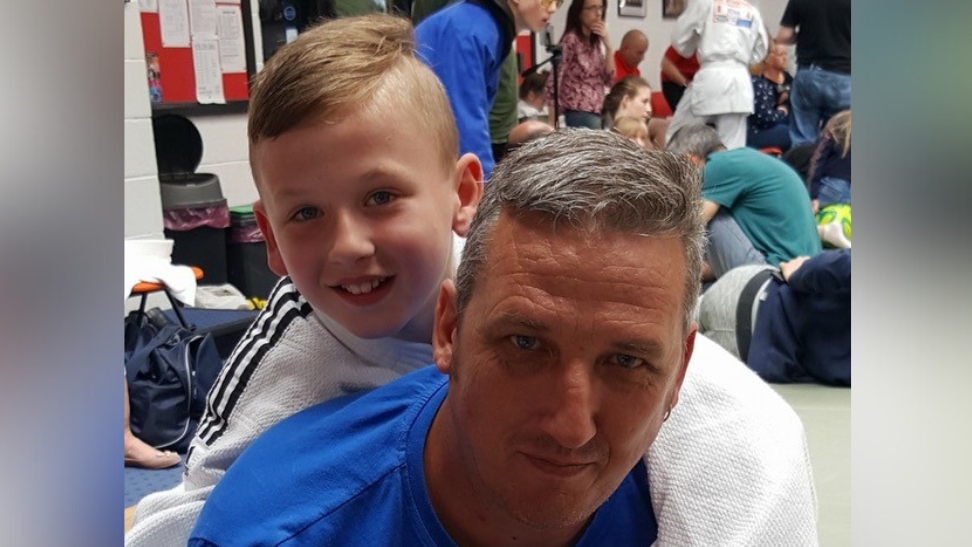
Simon Haycock's son Sam drowned in Ulley Reservoir in South Yorkshire in 2021
- Published
The father of a teenage boy who drowned in a reservoir has said he has a "real worry" that a "whole generation" of children lack the swimming skills to keep them safe.
Sam Haycock, 16, lost his life in Ulley Reservoir in South Yorkshire in May 2021.
His father Simon, from Rotherham, said it was "vital" children were taught to swim at secondary school, in addition to current lessons for primary pupils.
Mr Haycock, who has campaigned for better water safety since losing his son, said: "Nobody can deny that swimming is a vital life skill that we should be teaching all kids."
Mr Haycock said: "It's all well and good leaving school with this qualification, with that qualification - but they haven't got a qualification to keep them alive in certain situations.
"These dangers are there, nobody can deny them."
'Dangerous situation'
He said Sam was never a strong swimmer and he wished he had been given lessons as part of PE at secondary school.
"If he could have swam, who knows, it's better to have these skills in place isn't it?"
He said the closure of several swimming pools in the Rotherham area had made the problem worse, while many schools had lost their swimming facilities over the years.
The 54-year-old learned to swim at what is now Wingfield Academy in Rotherham, which used to have its own small pool.
Swimming and water safety lessons are currently only a compulsory part of the curriculum in primary school - either in key stages 1 or 2, but free schools and academies are not required to follow the national curriculum.
There is currently no requirement for swimming to be taught or included as a sport in PE lessons at secondary schools.
"I don't think six half-hour sessions is anywhere near sufficient," Mr Haycock said.
"They really are putting all our youth groups in a dangerous situation."
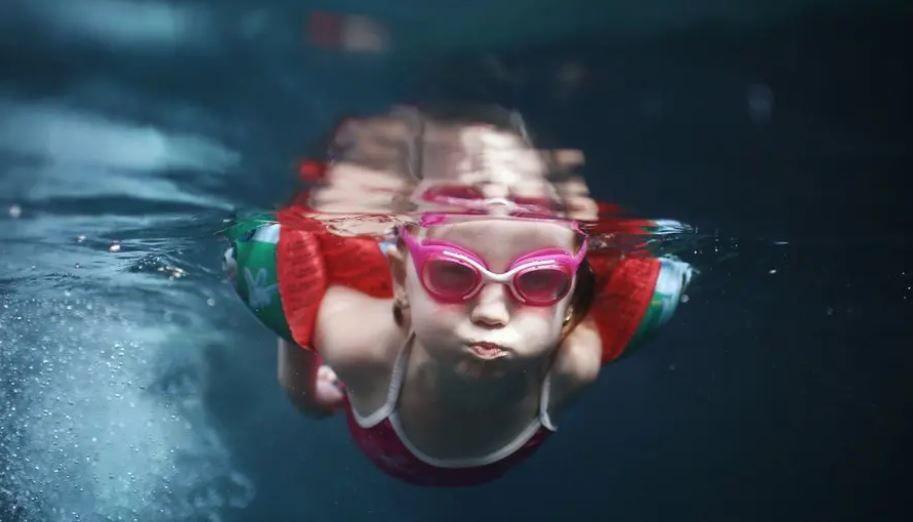
Swimming and water safety lessons are currently only part of the national curriculum in primary schools
Chris Porter is one of the managers at Tadcaster Community Swimming Pool in North Yorkshire.
He warned there was a Covid cohort of children coming through who could not swim to the expected standard by secondary school age, who missed out on lessons during the pandemic because of the restrictions.
"There is a knock-on now and definitely a higher rate of children that haven't achieved the key stage 2 standard of 25 metres," he said.
In 2021, the charity Swim England warned that more than one million children could leave primary school in the subsequent five years unable to swim the minimum standards required under the national curriculum., external
Mr Porter warned that "cost is also a barrier", with it often depending on how far children had to travel to their local swimming pool.
He said: "The Tadcaster schools are really fortunate that they can walk to the pool, so there are very limited, low-level costs.
"As a charity pool ourselves we don't actually charge the schools, to try to boost the numbers."
He said at nearby Tadcaster Grammar School pupils could take swimming as part of their options in year 9, which he said was unusual.
"You just wonder how many children would choose that in year 7, 8 and 9."
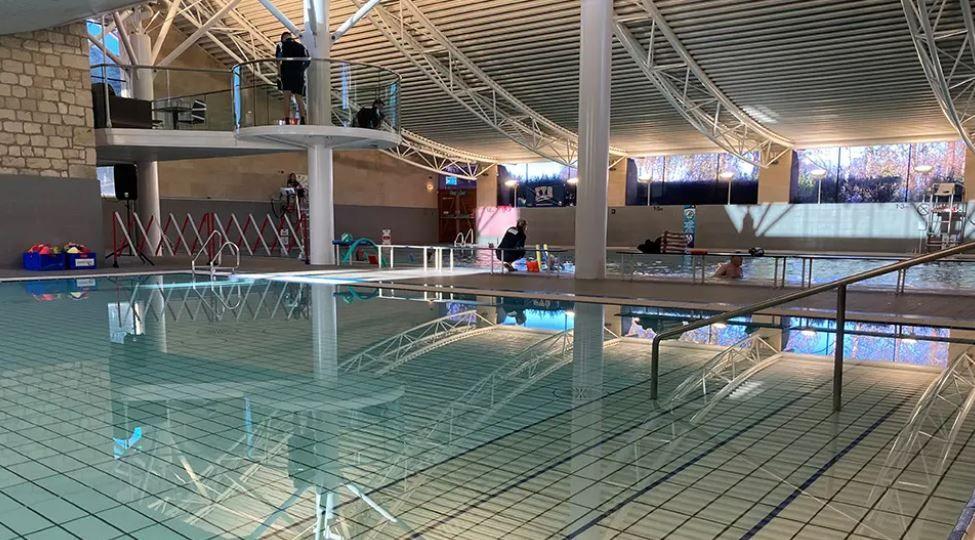
The Tadcaster Community Swimming Pool is marking its 30th anniversary
The pool at Tadcaster is community run and marks its 30th anniversary next month.
The trust that runs it receives no ongoing financial support and is funded through the community using the facility.
In other areas, cash-strapped council-run swimming pools have been forced to close.
Kirklees Council said earlier this month that it planned to shut Dewsbury Sports Centre permanently - although the decision will be subject to further scrutiny following a backlash.
The centre stopped operating in September 2023 after collapse-prone reinforced autoclaved aerated concrete (Raac) was found on site.
The authority said it would cost too much to refurbish the facility.
'Should be standardised'
Danny Martland, head coach at Tadcaster York Sport Swim Squad and University of York Swimming, agreed that swimming should "definitely" be on the curriculum in secondary schools.
He learned to swim at what is now Selby Leisure Centre and was a competitive swimmer - but was forced to stop because of a shoulder injury.
"Swimming is not only a sport - but a vital life skill - I don't understand why it wouldn't be," he said.
"It should be a standardised skill that everybody has at a good level."
A spokesperson for the Department for Education said: “The secondary PE curriculum gives schools the freedom to deliver lessons that suit the needs of their pupils - to build on the skills they learned in primary school becoming more competent and confident, including swimming and water safety lessons.”
Listen to highlights from North Yorkshire on BBC Sounds, catch up with the latest episode of Look North or tell us a story you think we should be covering here, external.
- Published26 May 2023

- Published14 November 2024

- Published14 December 2022
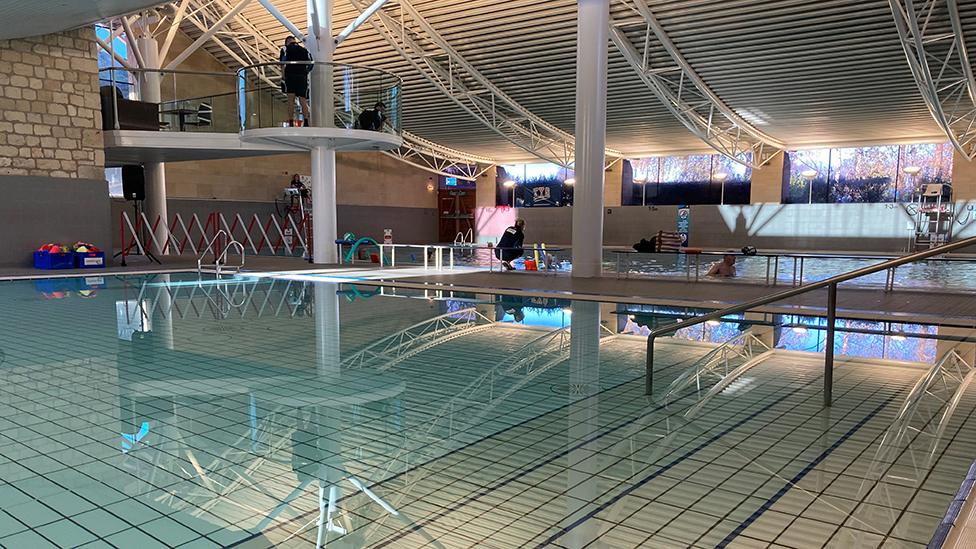
- Published3 October 2024
